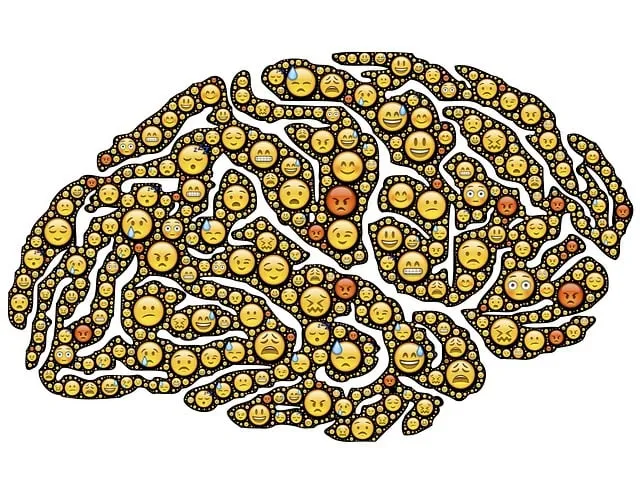Englewood Kaiser Permanente's mental health appointment center provides comprehensive Crisis Intervention Team (CIT) training, equipping healthcare professionals with crisis management skills through hands-on role-playing and theoretical knowledge. This holistic approach aims to reduce crisis intensity, improve long-term patient outcomes, and foster safer, more compassionate care during emotional turmoil. Continuous assessment methods and best practices ensure program effectiveness, while future directions include public awareness campaigns and cultural competency training. Integrating Mind Over Matter principles enhances coping strategies and promotes resilience among participants, strengthening crisis response capabilities for better community mental health and wellness.
“In today’s challenging landscape, effective crisis intervention is more crucial than ever. This article explores the vital role of Crisis Intervention Team (CIT) training programs in equipping healthcare professionals with essential skills. We delve into the comprehensive guide to CIT Training, highlighting the unique contribution of the Englewood Kaiser Permanente Mental Health Appointment Center as a pioneering force. Additionally, we examine best practices for implementing and evaluating these life-saving initiatives, offering insights into future directions.”
- Understanding Crisis Intervention Team (CIT) Training: A Comprehensive Guide
- The Role of Englewood Kaiser Permanente Mental Health Appointment Center in CIT Programs
- Implementing and Evaluating CIT Training Effectiveness: Best Practices and Future Directions
Understanding Crisis Intervention Team (CIT) Training: A Comprehensive Guide

Crisis Intervention Team (CIT) training programs are designed to equip healthcare professionals with the skills needed to support individuals in mental health crises effectively. At centers like Englewood Kaiser Permanente’s mental health appointment center, these programs prioritize comprehensive learning experiences that encompass various aspects of crisis management. Participants engage in hands-on training, role-playing scenarios, and theoretical knowledge sessions to enhance their understanding of complex emotional situations.
The curriculum typically covers essential components such as communication strategies for de-escalation, mood management techniques, and self-awareness exercises to promote empathetic interactions. By fostering better understanding between caregivers and those in distress, CIT training aims to reduce the intensity of crises and improve long-term outcomes. Through continuous practice and reflection, healthcare providers become more adept at responding calmly and appropriately, ultimately providing safer, more compassionate care during moments of heightened emotional turmoil.
The Role of Englewood Kaiser Permanente Mental Health Appointment Center in CIT Programs

The Englewood Kaiser Permanente Mental Health Appointment Center plays a pivotal role in advancing crisis intervention team (CIT) programs within the healthcare landscape. As a leading mental health facility, it offers specialized training and support tailored to help healthcare professionals effectively manage and de-escalate crises. Their comprehensive CIT programs are designed to equip staff with the necessary skills in identifying, assessing, and intervening during mental health emergencies.
Through innovative mental wellness coaching programs and development initiatives, the center fosters a culture of positive thinking and crisis intervention guidance. By providing continuous education and resources, they ensure healthcare providers are well-prepared to handle complex situations, ultimately enhancing patient safety and outcomes. This specialized training contributes significantly to the overall resilience of healthcare teams, enabling them to navigate challenging scenarios with compassion and professionalism.
Implementing and Evaluating CIT Training Effectiveness: Best Practices and Future Directions

Implementing and evaluating crisis intervention team (CIT) training programs is paramount to enhancing mental health support in various settings, including urban centers like Englewood Kaiser Permanente’s mental health appointment center. Best practices involve continuous assessment methods that track trainee skills acquisition and behavioral changes post-training. This can include pre and post-training assessments, as well as ongoing monitoring through simulated crisis scenarios and debriefings. By comparing performance metrics, such as response time, appropriate resource utilization, and patient outcomes, program organizers can identify areas for improvement and ensure the CIT’s effectiveness.
Future directions in CIT training emphasize public awareness campaigns development to destigmatize mental health issues, fostering a supportive environment. Additionally, healthcare provider cultural competency training is crucial to address diverse community needs. Integrating Mind Over Matter principles into CIT curriculum can empower participants with coping strategies, promoting resilience and long-term well-being. These multifaceted approaches not only strengthen crisis response capabilities but also contribute to the overall mental health and wellness of communities served by Englewood Kaiser Permanente and similar healthcare facilities.
Crisis intervention team (CIT) training programs, as exemplified by the work of organizations like Englewood Kaiser Permanente Mental Health Appointment Center, play a pivotal role in equipping professionals with the skills to manage and de-escalate crises effectively. By implementing best practices outlined in this guide and drawing insights from centers such as the Englewood Kaiser Permanente mental health appointment center, healthcare systems can enhance CIT program effectiveness, ultimately improving patient outcomes and community safety. Continuous evaluation and innovation are crucial for the future of these programs, ensuring they remain dynamic and responsive to evolving crisis scenarios.






